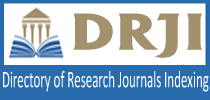The Urgency of Arabic for Religious Court Judges in Indonesia
Abstract
As a judicial institution based on Islamic law, the religious court is a special court which is only authorized in certain areas of civil, not including the criminal field (except Aceh province) for Moslems. Therefore, Islamic law and Arabic language should become a daily routine for judges. This study was designed to gain an in-depth understanding of Arabic urgency for religious court judges in Indonesia and how those language skill affect the duties and responsibilities of religious court judges. Arabic plays an important role in the religious court because Arabic is the language of the Holy Quran and other Islamic laws. The judges considered Arabic very high esteem with most of their duties and responsibilities were inseparable from Arabic. Governments have been offering scholarships and other opportunities for judges who are interested in Arabic studies and Islamic studies in the Middle East.
Keywords
Full Text:
PDFReferences
Agustiar. (2018). Kaidah Bahasa Arab dan Urgensinya terhadap Penafsiran Alqur’an. Jurnal An-Nur, 4 (2), 187–204. http://ejournal.uin-suska.ac.id/index.php/Annur/article/view/2061
Al-Mawardi, A. al-H. ’Ali ibn M. Mad Ibn H. (1966). Al-Ahkam al-Sultaniyyah (III). Matba’ah Mustafa al-Babi al-Halabi.
Al-Shafi’i, M. bin I. (1961). Al-Umm. al-Sharikah al-Fanniyya al-Muttahada.
AR, Ibnu. (2015). Hakim Agama dan Bahasa Arab. Badan Peradilan Agama. https://badilag.mahkamahagung.go.id/artikel/publikasi/artikel/hakim-agama-dan-bahasa-arab-oleh-ibnu-ar-06-11
Azad, G. M. (1984). Qualification of a Qadi, Islamic Studies.
Diana Rahmi. (2013). Ruang Lingkup Kewenangan Peradilan Agama Dalam Mengadili Sengketa Ekonomi Syariah, Fakultas Syariah dan Ekonomi Islam IAIN Antasari, Jl. Jenderal Ahmad Yani Km 4,5 Banjarmasin. Syariah: Jurnal Hukum Dan Pemikiran, 13 (2), 1–12. https://jurnal.uin-antasari.ac.id/index.php/syariah/article/download/174/116
Djalil, A. B. (2006). Peradilan Agama di Indonesia (1st ed.). Kencana Media Group. https://books.google.co.id/books?id=FMtADwAAQBAJ&printsec=frontcover&dq=FMtADwAAQBAJ&hl=id&sa=X&ved=0ahUKEwi-19muiPHnAhUHWX0KHTslDisQ6AEIKzAA#v=onepage&q&f=false
M. Sayuthi Ali. (2002). Metodologi Penelitian Agama; Pendekatan Teori dan Praktek. PT RajaGrafindo Persada.
M. Yahya Harahap. (2005). Hukum Acara Perdata : Gugatan, Persidangan, Penyitaan, Pembuktian, dan Putusan Pengadilan. In I (7th ed., Vol. 1, Issue Jakarta). Sinar Grafika.
Malik, H. S. (n.d.). The Conduct of Qadi (Muslim Judge) in Islam. https://d1wqtxts1xzle7.cloudfront.net/59211321/CONDUCT_OF_QADI__A_MUSLIM_JUDGE20190511-1673-7v7luc-libre.PDF?1557583938=&response-content-disposition=attachment%3B+filename%3DCONDUCT_OF_QADI_A_MUSLIM_JUDGE_PDF.pdf&Expires=1648610561&Signature=C54zX2SGEN97
Moleong, L. J. (2018). Metode Penelitian Kualitatif (38th ed.). Remaja Rosda Karya. https://opac.perpusnas.go.id/DetailOpac.aspx?id=1133305
Muhammadun, M. (2015). Urgensi Bahasa Arab Dalam Mengatasi Terjadinya Bias Gender (Penafsiran Teks dan Konteks Bahasa dalam Wacana Keagamaan). Al-Maiyyah : Media Transformasi Gender dalam Paradigma Sosial Keagamaan. Al-Maiyyah, 8 (1), 160–178. http://ejurnal.stainparepare.ac.id/index.php/almaiyah/article/view/320
Primaningtyas, M., & Setyawan, C. E. (2019). Urgensi Bahasa Arab dalam Pendidikan Islam di Era Revolusi Industri 4.0. Saliha, 2 (2), 1–19.
DOI: https://doi.org/10.31869/aflj.v2i2.3201
Article Metrics
Abstract view : 174 timesPDF - 127 times
Refbacks
- There are currently no refbacks.
INDEXED BY:








 This work is licensed under a Creative Commons Attribution-ShareAlike 4.0 International License.
This work is licensed under a Creative Commons Attribution-ShareAlike 4.0 International License.




